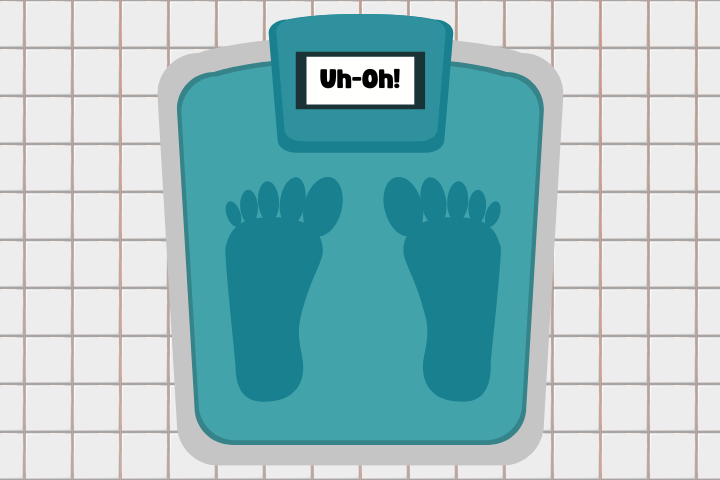According to the CDC, as of June 2020, 13% of Americans reported starting or increasing substance use as a way of coping with stress or emotions related to COVID-19. Substance abuse negatively impacts fertility in both men and women. Substance abuse is defined as:
- Overusing prescription and over-the-counter medications
- Indulging in illegal street drugs
- Drinking alcohol often and in great quantities
- Smoking cigarettes
The American Addiction Centers said women and substance abuse do not mix. This is because they are more likely to have issues with fertility than men.
Hormones may also dictate how substances metabolize in the body. In contrast to men, women tend to have hormonal changes across their monthly cycles.
How Substance Abuse Influences Female Fertility
Female fertility requires optimal hormonal balance. Substance abuse affects female reproductive hormones, disrupting menstrual cycles. And women who abuse substances increase their risk for intra-uterine infections, which further complicate fertility.
The American Society for Reproductive Medicine explains that even tobacco negatively influences female fertility:
- Women who smoke experience menopause up to four years earlier than women who do not smoke.
- Smoking promotes egg loss.
- Women who smoke decrease their odds of getting pregnant by up to 30 percent following in vitro fertilization, compared with women who do not smoke.
- Women who smoke also have a higher risk of miscarriage.
The good news is that quitting smoking decreases these risks significantly.
Other substances that influence female reproduction include:
- Alcohol – may lead to disorders in ovulation
- Street drugs – may not be pure. Illegal street drugs may contain ingredients that cause fertility issues, or even death.
- Opioids – research shows that opioids affect the entire endocrine system, including reproduction hormone levels
- Overusing prescription and over-the-counter medications, which may lead to addiction, hormonal imbalance, or a compromised sperm count.
Substance Abuse and Male Fertility Issues
 Recent analysis of studies show substance abuse affects the sperm quality in males. This includes, but is not limited to, smoking and alcohol consumption.
Recent analysis of studies show substance abuse affects the sperm quality in males. This includes, but is not limited to, smoking and alcohol consumption.
Other findings include:
- Sexual dysfunction issues
- Endocrine hormone issues
- Testosterone impairment
In other words, the same substances that impair female fertility damage male fertility too, but in different ways.
- Alcohol – may negatively impact sperm quality
- Smoking – may cause sperm sluggishness and decreased sperm production
- Street drugs and opioid abuse – may interfere with testosterone levels
What You Can Do
When you quit smoking, the odds of becoming pregnant increase. This is true for both natural conception and conception with in vitro fertilization.
Seeking treatment for substance abuse addiction and giving up recreational use also increase your odds of becoming pregnant. Thankfully, due to the increased availability of telemedicine for behavioral health concerns, it’s easier than ever for people to access this life-saving care. Online resources help people connect with mental health services, many of which offer free or low-cost options.
StartYourRecovery.org provides helpful information for people who are dealing with substance use issues and has recently developed a comprehensive directory of support resources in Brooklyn, New York.
 How we can help
How we can help
At GENESIS, we take a multi-pronged approach to your fertility issues. This includes a substance history and referrals to top substance abuse clinics.
Our highly skilled team of physicians and support staff can help you realize your dream of becoming a parent, despite past issues with substance abuse. For example, we can adjust your fertility treatments and procedure plan based on your unique health profile.
We have an excellent donor egg program and can also help couples with donor sperm options. These options are only encouraged if a reproductive health issue warrants this approach.
Additionally, we can test your embryo before implantation through preimplantation genetic testing. This increases the odds of a successful pregnancy and healthy baby.
Past mistakes should not jeopardize your desire to start a family.
Why Choose GENESIS Fertility & Reproductive Medicine for Your Fertility Needs?
We are one of the key centers for excellence in fertility treatments in the United States. We owe this distinction to our expert medical team of clinicians, scientists and our compassionate support staff. They have put us at the forefront of reproductive technologies for more than 30 years.
We help couples, singles, and those in the LGBTQ community become parents. We serve patients in Brooklyn, Queens, Long Island, Staten Island and lower Manhattan. And we are always available to answer any questions. Talk to us if you have questions about your insurance and reproductive health options.
If you would like to learn more about GENESIS Fertility New York or are ready to schedule an appointment, please speak with one of our representatives at 929-605-5467.





